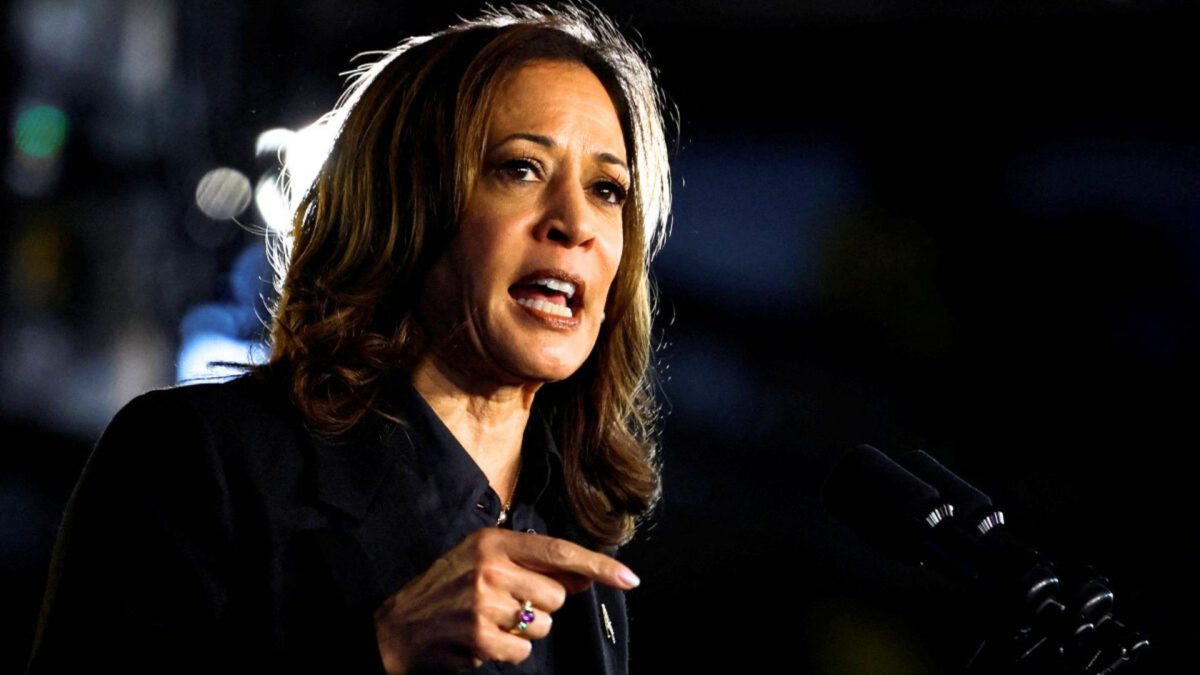US vice president and Democratic presidential nominee Kamala Harris is the focus of a fresh plagiarism controversy.
She has been accused of copying Martin Luther King and lifting sentences and phrases without citations in the book that served as the catalyst for her political career.
According to allegations, Harris plagiarised over a dozen passages from Smart on Crime, a book she co-wrote with Joan O’C Hamilton 15 years ago.
Let’s take a look.
The allegations
Conservative activist Christopher Rufo shared the details of the latest plagiarism allegations on Monday, citing an investigation by Stefan Weber, an Austrian professor and so-called ‘plagiarism hunter’. According to Weber, the plagiarism in the book ranges from “minor transgressions” to more “serious infractions."
He reportedly found “24 fragments are plagiarism from other authors, (and) three fragments are self-plagiarism from a work written with a co-author.”
Five instances of duplicate phrasing from the book and other sources, such as an Associated Press report, a Wikipedia page, a press release from John Jay College of Criminal Justice, and reports from the Bureau of Justice Assistance and the Urban Institute, are shown in Rufo’s report.
In one instance, the Wikipedia excerpt reads:
“The Midtown Community Court was established as a collaboration between the New York State Unified Court System and the Center for Court Innovation. The court works in partnership with local residents, businesses and social service agencies in order to organize community service projects and provide on-site social services, including drug treatment, mental health counseling, and job training.”
Impact Shorts
More ShortsWhile in Harris’ book, only two words were taken out.
“The Mid-town Community Court was established as a collaboration between the New York State Unified Court System and the Center for Court Innovation. The court works in partnership with local residents, businesses and social service agencies to organize community service projects and provide on-site social services, including drug treatment, mental health counseling, and job training.”
The New York Times points out that the AP case claims a different report as its source, but some of the samples actually have footnote citations even though the portions lack quotation marks. The challenged portions deal with background information rather than arguments or stories that are claimed to be Harris’ own.
In another case, an anecdote from her early years during the civil rights movement seems to quote Rev. Dr. King.
The 59-year-old wrote, “My mother used to laugh when she told the story about a time I was fussing as a toddler: She leaned down to ask me, “Kamala, what’s wrong? What do you want?” and I wailed back, “Fweedom.”
As previously reported by the New York Post and other media, the case is very similar to one that the civil rights leader shared.
“I will never forget a moment in Birmingham when a white policeman accosted a little Negro girl, seven or eight years old, who was walking in a demonstration with her mother,” King told Playboy magazine in 1965. “‘What do you want?’ the policeman asked her gruffly, and the little girl looked at him straight in the eye and answered, ‘Fee-dom.’”
In his report, Weber wrote, “What do these findings say about Kamala Harris? Is she in part fake? Did her ghostwriter plagiarise? Was it just the team behind her? I have no idea. I let other people from the US draw the right conclusions.”
Weber has previously investigated German politicians and academics, but Rufo made headlines when he levelled claims against Claudine Gay, the now-ousted president of Harvard University.
“Taken in total, there is certainly a breach of standards here. Harris and her co-author duplicated long passages nearly verbatim without proper citation and without quotation marks, which is the textbook definition of plagiarism,” Rufo wrote.
The ‘fraud’ jibe
Harris’s Republican opponents quickly seized the opportunity and criticised her, saying she lacks authenticity, is unsure of her values, and finds it difficult to articulate her views in her own words.
“Lmao Kamala didn’t even write her own book!” Trump’s running mate JD Vance, also the author of the bestselling memoir Hillbilly Elegy, wrote on social media.
Lmao Kamala didn't even write her own book! https://t.co/gEvyRdUrvG
— JD Vance (@JDVance) October 14, 2024
He added, “I wrote my own book, unlike Kamala Harris, who copied hers from Wikipedia,” and followed up with a quip aimed at “corporate media ‘fact checkers.’”
The claims, according to Donald Jr. Trump’s eldest son, provided “more evidence that Kamala Harris is a fraud,” as per The Telegraph.
Harris campaign’s response
In a statement to Semafor, Harris’ team denied the plagiarism claims, calling them the work of “right-wing operatives” who “are getting desperate” in the face of the vice president’s “bipartisan coalition of support.”
“This is a book that’s been out for 15 years, and the Vice President clearly cited sources and statistics in footnotes and endnotes throughout,” campaign spokesperson James Singer said.
About the book
Together with Hamilton, Harris co-wrote the book, Smart on Crime: A Career Prosecutor’s Plan to Make Us Safer, early in her political career as she tried to make a name for herself as a young California prosecutor.
It was released in 2009, when she was San Francisco’s district attorney.
With her insights from her work as a prosecutor and her recommendations for systemic reform to “end the cycle of repeat offenders,” it functioned as a sort of policy manifesto.
“Harris shatters the old distinctions rooted in false choices and myths. She presents practical solutions for making the criminal justice system truly—not just rhetorically—tough,” the publisher wrote.
With inputs from agencies


)

)
)
)
)
)
)
)
)



